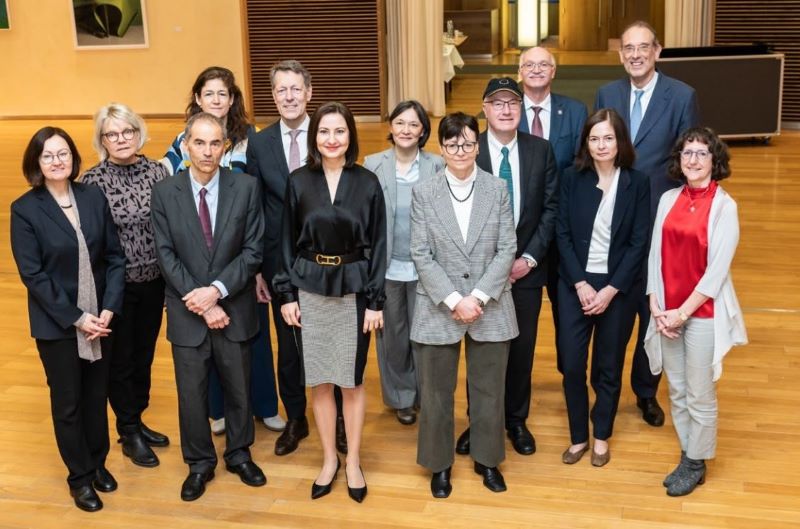RSU contributes to report by the European Union Expert Group on Science
On 16 October this year, the report 'Align, act, accelerate' was presented in Brussels. It was drafted by a group of experts chaired by Manuel Heitor and focuses on how to strengthen the role of the European Union's (EU) research and innovation programmes in addressing Europe's common challenges and boosting competitiveness. Agrita Kiopa, Vice-Rector for Science at Rīga Stradiņš University (RSU), also contributed to the report, focusing on strengthening research organisations and enterprises from all EU Member States, including Latvia.
 Publicity photo
Publicity photo
The independent expert report provides strategic recommendations on what the EU's next research funding programme should look like when Horizon Europe comes to an end. It complements the already published reports by Mario Draghi and Enrico Letta on the development of European competitiveness and the single market. Report ‘Align, act, accelerate’ - Publications Office of the EU
Simplify, align with others' needs and increase funding!
According to RSU Vice-Rector Agrita Kiopa,
‘Overall, the 12 recommendations in the report suggest that the programme should be much simpler, aligned with the common needs of the EU, have much more funding and allow for dual use of the results, including relating to European security.’
Addressing Europe's competitiveness challenges in all sectors of the economy - energy, critical raw materials, IT and AI, pharmaceuticals, defence and others - requires not only an increase in overall investment, but also the creation of new programmes to address industrial and societal challenges, building on existing experience in research funding. In addition, these programmes should be jointly managed with industry and private donors and attract additional funding from Member States.
Four core spheres of action
The report advocates for Europe pursuing a transformative agenda to address four critical and interdependent core spheres of action: promoting and strengthening competitive excellence in science and innovation; fostering industrial competitiveness through strategic research and innovation initiatives; fostering societal change through research and innovation in response to societal challenges; and strengthening the European research, development and innovation ecosystem.
This transformative agenda should be implemented in the short term, through specific actions in the last three years of Horizon Europe, 2025-2027, and embedded in future EU support to research and innovation.
Contribution of the research framework programmes to developing Europe
For more than 40 years, the EU framework programmes for research and innovation have strengthened Europe through scientific cooperation, pooling efforts around common priorities and funding world-class researchers and innovators. This has led to major scientific breakthroughs, and every euro invested in the programme has returned at least five euros to society.
Related news
 From idea to prototype in 30 hours: students participate in MedTech Sprint hackathon For Students, Innovation, For RSU Employees, Research
From idea to prototype in 30 hours: students participate in MedTech Sprint hackathon For Students, Innovation, For RSU Employees, Research


